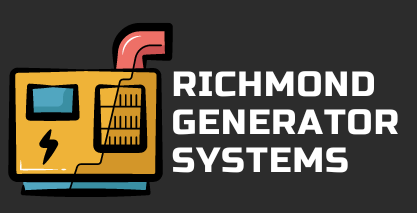
Whole House Generators in Westover Heights VA
A whole house generator is a system designed to provide electricity to an entire home during a power outage. Unlike portable generators, which can only power a few essential appliances, whole house generators are permanently installed and connected to your home's electrical system. They automatically start when the power goes out and shut down when the power is restored. There are several types of whole house generators, each suited to different needs and preferences. The most common types are:
- Standby Generators: These are permanently installed outside your home and automatically start up during a power outage. They run on natural gas or propane and are designed to provide power to your entire house.
- Automatic Transfer Switch Generators: This type is connected to an automatic transfer switch that detects power loss and seamlessly switches the electricity source from the grid to the generator.
- Portable Generators with Transfer Switches: Though not as robust as standby generators, portable generators can be connected to a transfer switch to provide temporary power during outages.
What We Offer
At our company, we offer a comprehensive range of
whole house generator in Westover Heights, VA solutions tailored to fit the needs of homeowners. Our services include expert installation, routine maintenance, and efficient repairs. We work with top brands and models to ensure you get a reliable system that matches your home's power requirements. Whether you need a new generator or want to upgrade your existing one, we are here to help.
- Residential Generators
- Commercial Generators
- Portable Generators
- Electric Generators
- Propane Generators
- Solar Generators
- Generator Repairs
- Generator Maintenance
- Generator Parts

We will get back to you as soon as possible.
Please try again later.
How Do They Work?
Whole house generators work by detecting a power outage through an automatic transfer switch. When the system senses that the grid power is lost, the generator starts and begins supplying power to your home. The transfer switch safely disconnects your home from the grid and connects it to the generator. This process is seamless, ensuring that there is minimal disruption to your household's power supply. Once the utility power is restored, the system automatically switches back and turns off the generator.
Fuel Sources
Whole house generators typically operate on one of three fuel sources:
- Natural Gas: This is a popular choice due to its convenience and reliability. Natural gas generators are connected to the home’s existing gas line, providing a constant fuel supply as long as the gas line is intact.
- Propane: Propane generators require a dedicated propane tank. This option is ideal for homes where natural gas is not available. Propane tanks can be refilled as needed.
- Diesel: Diesel generators are less common for residential use but are known for their durability and efficiency. They require a dedicated fuel storage tank and regular refueling.
Installation Steps, Testing, and Commissioning
The installation of a whole house generator involves several key steps:
- Site Assessment: We start by evaluating the best location for the generator, considering factors like accessibility, ventilation, and noise.
- Permitting: We handle all necessary permits and paperwork required for installation, ensuring compliance with local codes and regulations.
- Installation: Our team will install the generator, including the transfer switch and fuel lines, following manufacturer guidelines.
- Testing: Once installed, the generator undergoes thorough testing to ensure it operates correctly and efficiently.
- Commissioning: We finalize the installation by providing a detailed demonstration on how to use the generator and perform basic maintenance tasks.
Regular Maintenance Tasks
To ensure your whole house generator remains in top working condition, regular maintenance is essential. Routine tasks include:
- Inspection: Regularly checking the generator for signs of wear and tear or potential issues.
- Oil Changes: Replacing the oil at intervals specified by the manufacturer to keep the engine running smoothly.
- Filter Replacements: Changing air and fuel filters to maintain efficiency and performance.
- Battery Checks: Inspecting and testing the battery to ensure reliable starting.
- Exercise Cycles: Running the generator periodically to keep it in good working condition and to prevent issues from inactivity.
Diagnosing and Addressing Common Problems
Whole house generators can experience issues like any mechanical system. Common problems include:
- Starting Issues: If the generator does not start, check the fuel supply, battery, and connections.
- Overloading: Ensure that the generator is not overloaded by exceeding its power capacity. This can be identified by flickering lights or tripped circuit breakers.
- Fuel Supply Problems: Blockages or leaks in the fuel lines can prevent the generator from running properly.
- Maintenance Neglect: Failure to perform regular maintenance can lead to performance issues or breakdowns.
If you encounter any of these problems, our expert technicians are available to diagnose and resolve issues efficiently.
Considerations When Choosing a Whole House Generator
When selecting a whole house generator, consider the following factors:
- Power Needs: Calculate the total wattage required to power your home’s essential appliances and systems during an outage.
- Fuel Type: Choose a fuel source based on availability, cost, and convenience.
- Installation Space: Ensure there is adequate space for the generator and proper ventilation.
- Budget: Consider the initial cost of the generator and installation, as well as ongoing maintenance and fuel expenses.
- Brand and Warranty: Opt for reputable brands that offer solid warranties and reliable customer support.
Importance of Having a Reliable Backup Power Source
Having a reliable backup power source is crucial for several reasons:
- Uninterrupted Power Supply: Whole house generators ensure that your home remains powered during outages, protecting your household from the inconvenience of losing electricity.
- Safety and Security: Backup power keeps security systems, alarms, and medical equipment operational, enhancing your family's safety during emergencies.
- Property Protection: Continuous power prevents damage to appliances and systems, such as refrigeration units and HVAC systems, which can be costly to repair or replace.
- Comfort: Powering essential systems like heating and cooling ensures comfort during adverse weather conditions.
Common FAQs
- How long can a whole house generator run? Most generators can run for several hours to days, depending on the fuel supply and load.
- Do I need to perform regular maintenance? Yes, regular maintenance is crucial to ensure reliable operation and prolong the lifespan of your generator.
- Can I install a generator myself? It is recommended to have a professional install your generator to ensure proper setup and compliance with safety standards.
- What happens if the generator fails during an outage? Regular maintenance helps prevent failures, but if an issue occurs, our team is available to provide repair services.
For expert advice, installation, and maintenance of whole house generators in Westover Heights, VA, contact us today. Our knowledgeable team is here to help you find the perfect solution to keep your home powered during any outage. Reach out now to schedule a consultation and ensure your home is always ready for unexpected power interruptions.
Let's Connect!
Looking for reliable power solutions? Look no further than us! Our expert team is here to help you understand how whole house generators work and why they're essential. Don't get caught in the dark! Check out our buyer's guide and discover the reasons for the loss of power. Contact us today for a consultation!